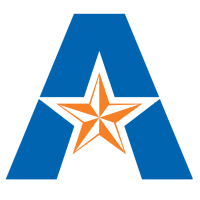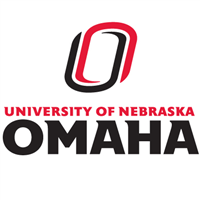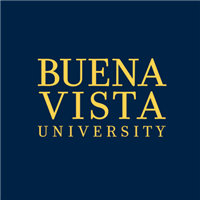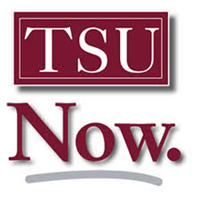What do they do?
Interview loan applicants to elicit information; investigate applicants' backgrounds and verify references; prepare loan request papers; and forward findings, reports, and documents to appraisal department. Review loan papers to ensure completeness, and complete transactions between loan establishment, borrowers, and sellers upon approval of loan.
Also known as:
Closer, Closing Coordinator, Licensed Loan Officer Assistant, Loan Analyst, Loan Assistant, Loan Clerk, Loan Closer, Loan Originator, Loan Processor, Loan Representative, Mortgage Broker, Mortgage Loan Closer, Mortgage Loan Processor, Mortgage Processor
-
-3.4%
Change
Ranks #56 in job growth rate620Job Openings
Ranks #10 in net job growth
-
The University of Texas at Arlington
Arlington, TX
-
University of Nebraska at Omaha
Omaha, NE
-
Buena Vista University
Storm Lake, IA
-
Northern State University
Aberdeen, SD
-
Texas Southern University
Houston, TX
Looking for colleges that offer a specific major? Use the College Match Tool to find your best-matched schools and discover your estimated Net Price!
- Doctorate or Professional Degree (<1%)
- Master's degree (4%)
- Bachelor's degree (26%)
- Associate's degree (13%)
- Some college, no degree (31%)
- High school diploma equivalent (24%)
- Less than high school diploma (2%)
People in this career often have these skills:
- Active Listening - Giving full attention to what other people are saying, taking time to understand the points being made, asking questions as appropriate, and not interrupting at inappropriate times.
- Speaking - Talking to others to convey information effectively.
- Reading Comprehension - Understanding written sentences and paragraphs in work-related documents.
- Critical Thinking - Using logic and reasoning to identify the strengths and weaknesses of alternative solutions, conclusions, or approaches to problems.
- Writing - Communicating effectively in writing as appropriate for the needs of the audience.
- Complex Problem Solving - Identifying complex problems and reviewing related information to develop and evaluate options and implement solutions.
- Active Learning - Understanding the implications of new information for both current and future problem-solving and decision-making.
- Social Perceptiveness - Being aware of others' reactions and understanding why they react as they do.
- Judgment and Decision Making - Considering the relative costs and benefits of potential actions to choose the most appropriate one.
People in this career often know a lot about:
- Customer and Personal Service - Knowledge of principles and processes for providing customer and personal services. This includes customer needs assessment, meeting quality standards for services, and evaluation of customer satisfaction.
- English Language - Knowledge of the structure and content of the English language including the meaning and spelling of words, rules of composition, and grammar.
- Administrative - Knowledge of administrative and office procedures and systems such as word processing, managing files and records, stenography and transcription, designing forms, and workplace terminology.
- Computers and Electronics - Knowledge of circuit boards, processors, chips, electronic equipment, and computer hardware and software, including applications and programming.
- Law and Government - Knowledge of laws, legal codes, court procedures, precedents, government regulations, executive orders, agency rules, and the democratic political process.
- Mathematics - Knowledge of arithmetic, algebra, geometry, calculus, statistics, and their applications.
People in this career often have talent in:
- Oral Comprehension - The ability to listen to and understand information and ideas presented through spoken words and sentences.
- Written Comprehension - The ability to read and understand information and ideas presented in writing.
- Oral Expression - The ability to communicate information and ideas in speaking so others will understand.
- Speech Recognition - The ability to identify and understand the speech of another person.
- Speech Clarity - The ability to speak clearly so others can understand you.
- Problem Sensitivity - The ability to tell when something is wrong or is likely to go wrong. It does not involve solving the problem, only recognizing that there is a problem.
- Information Ordering - The ability to arrange things or actions in a certain order or pattern according to a specific rule or set of rules (e.g., patterns of numbers, letters, words, pictures, mathematical operations).
- Near Vision - The ability to see details at close range (within a few feet of the observer).
- Written Expression - The ability to communicate information and ideas in writing so others will understand.
- Deductive Reasoning - The ability to apply general rules to specific problems to produce answers that make sense.
- Inductive Reasoning - The ability to combine pieces of information to form general rules or conclusions (includes finding a relationship among seemingly unrelated events).
People in this career often do these activities:
- Verify accuracy of financial or transactional data.
- Compile data or documentation.
- Maintain financial or account records.
- Prepare documentation for contracts, transactions, or regulatory compliance.
- Provide notifications to customers or patrons.
- Obtain personal or financial information about customers or applicants.
- Determine the value of goods or services.
- Interview employees, customers, or others to collect information.
- Prepare business correspondence.
- Type documents.
- Monitor financial information.
- Calculate financial data.
- Arrange insurance coverage.
- Discuss account status or activity with customers or patrons.
- Collect deposits, payments or fees.
- Schedule appointments.
- Negotiate financial arrangements.
This page includes data from:

 Occupation statistics: USDOL U.S. Bureau of Labor Statistics Occupational Employment Statistics
Occupation statistics: USDOL U.S. Bureau of Labor Statistics Occupational Employment Statistics









